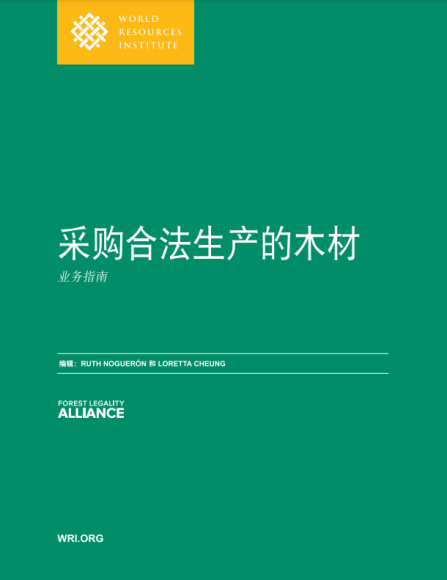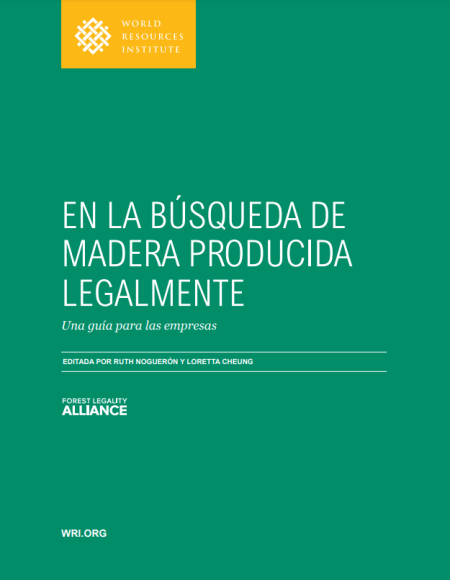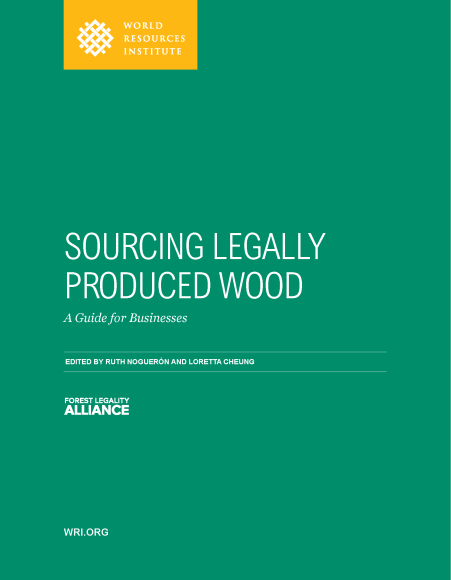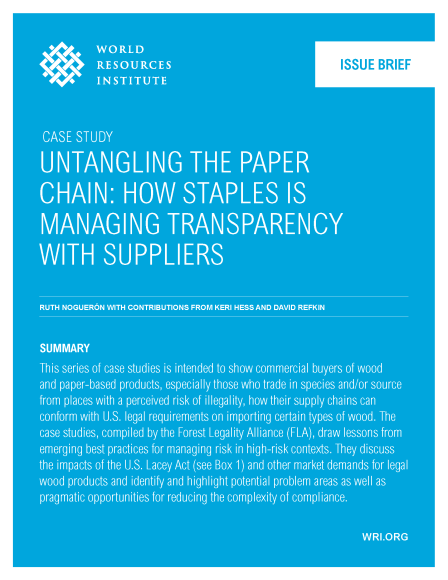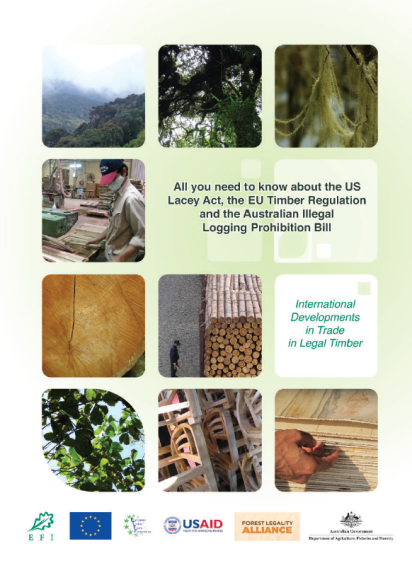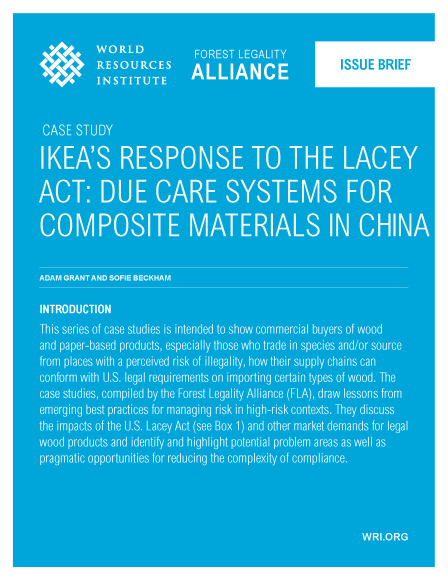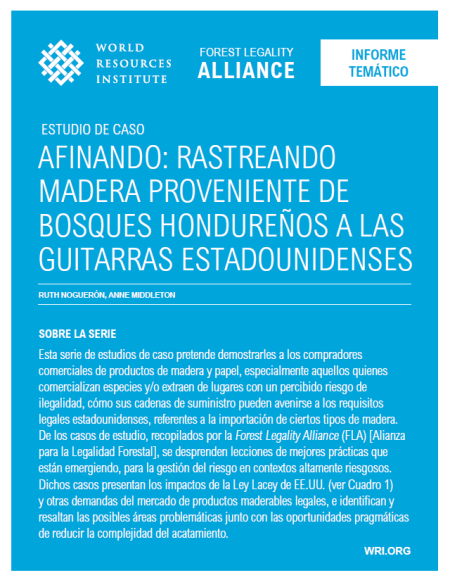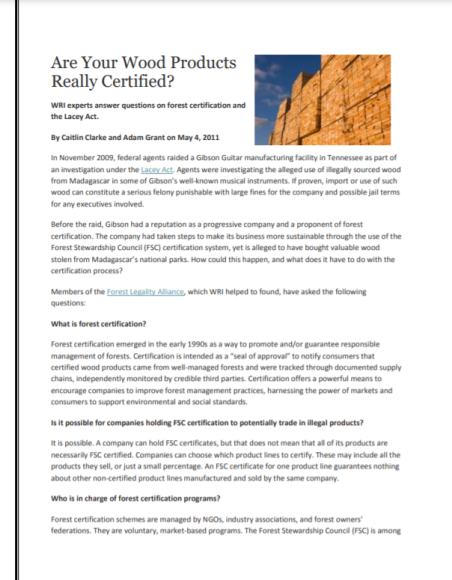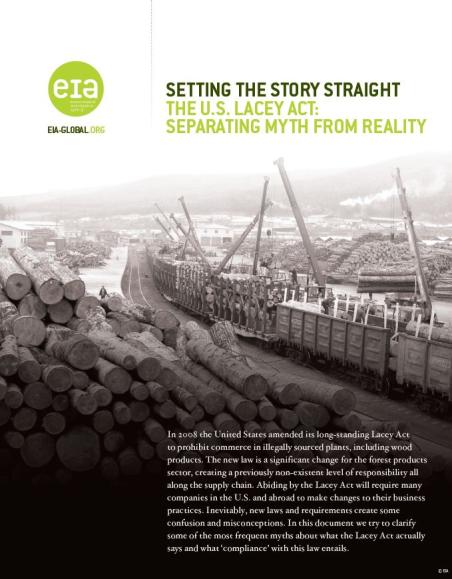Publications
采购合法生产的木材: 业务指南
En la búsqueda de madera producida legalmente: Una guía para las empresas
Sourcing Legally Produced Wood: A Guide for Businesses
This booklet provides an overview of key legality issues in the global wood trade that businesses should consider when purchasing wood and paper-based products. Topics covered include trade regulations (e.g., the Lacey Act, the European Union Timber Regulation, and the Australian Illegal Logging Prohibition), public and private procurement policies, trade bans, and resources for meeting legality requirements.
Untangling the Paper Chain: How Staples Is Managing Transparency with Suppliers
International Developments in Trade in Legal Timber
IKEA’s response to the Lacey Act: Due care systems for composite materials in China
Tuning in: Tracking Wood from Honduran Forests to U.S. Guitars
The Forest Legality Alliance series of case studies is intended to show commercial buyers of wood and paper-based products, especially those who trade in species and/or source from places with a perceived risk of illegality, how their supply chains can conform with U.S. legal requirements on importing certain types of wood. They draw lessons from emerging best practices for managing risk in high-risk contexts to identify and highlight potential problem areas, as well as pragmatic opportunities for reducing the complexity of compliance.
Afinando: Rastreando Madera Proveniente de Bosques Hondureños a las Guitarras Estadounidenses
Esta serie de estudios de caso pretende demostrarles a los compradores comerciales de madera y de productos basados en el papel, especialmente aquellos quienes comercializan especies y/o extraen de lugares con un percibido riesgo de ilegalidad, cómo sus cadenas de suministro pueden avenirse a los requisitos de legalidad de los Estados Unidos, referentes a la importación de ciertos tipos de madera.
Are Your Wood Products Really Certified?
Setting the Story Straight: The U.S. Lacey Act - Separating Myth from Reality
This brief report from the Environmental Investigation Agency aims to clear up a number of misconceptions that emerged after the Lacey Act plant amendments were passed. It discusses such subjects as how to practice due care, the role of supply chain documentation, and the interactions between certification programs and legal liability under the Lacey Act.
